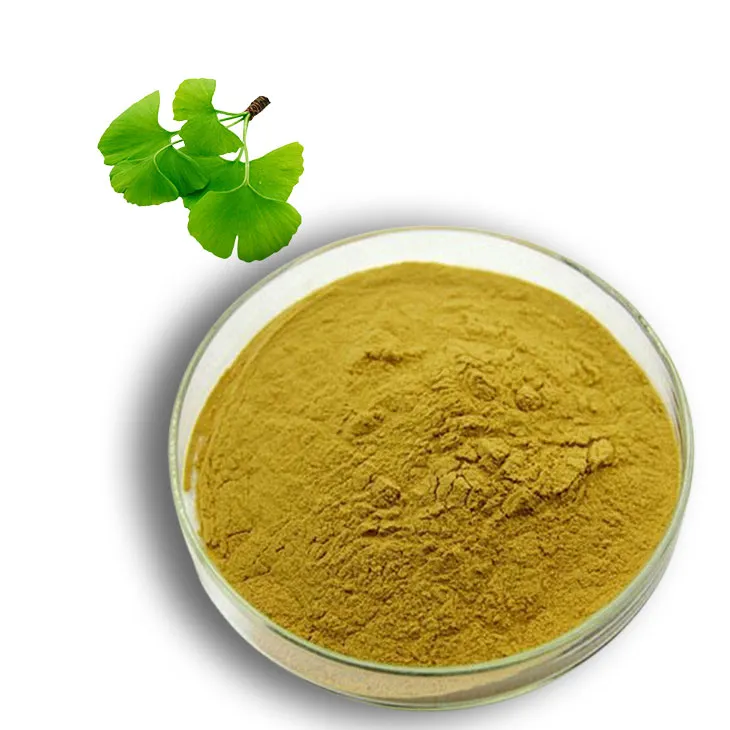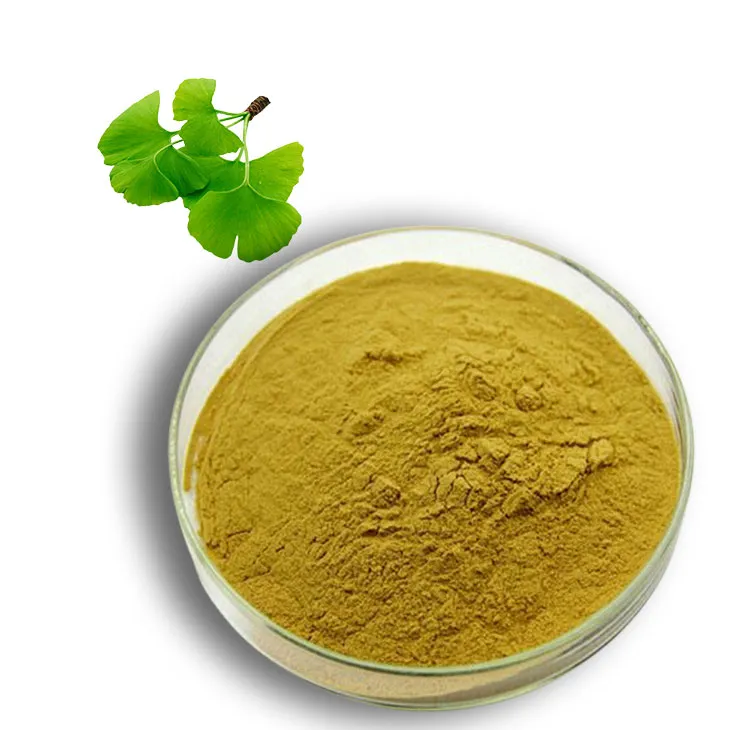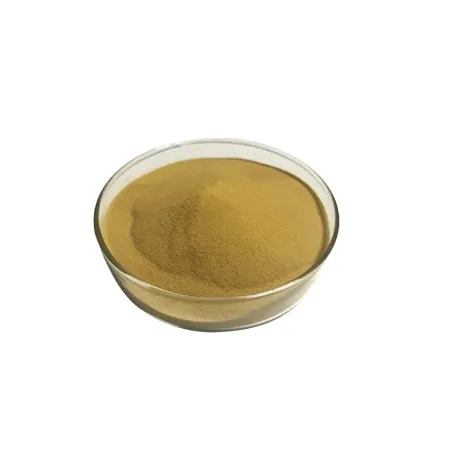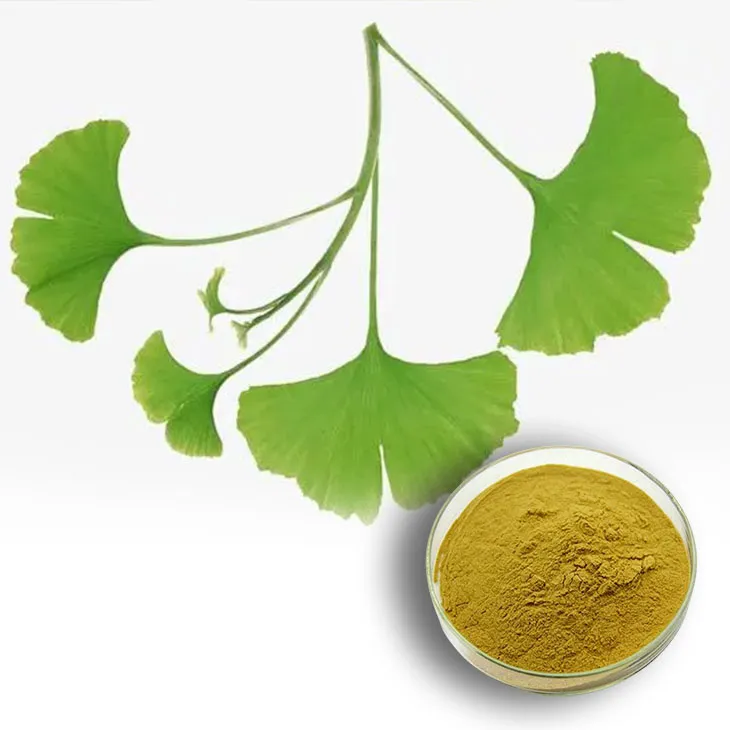- 0086-571-85302990
- sales@greenskybio.com
5 Benefits of Ginkgo Biloba Extract + Dosage, Side Effects
2024-11-13

1. Introduction
Ginkgo biloba is one of the oldest living tree species, and its extract has been used in traditional medicine for centuries. In modern times, it has gained significant popularity as a natural remedy for various health conditions. This article will explore the five main benefits of Ginkgo biloba extract, as well as discuss the proper dosage and potential side effects.

2. Benefits of Ginkgo Biloba Extract
2.1 Cognitive Function Improvement
Ginkgo biloba extract is widely known for its potential to enhance cognitive function. It may improve memory, attention, and concentration. Studies suggest that it can increase blood flow to the brain, which is crucial for optimal brain performance.
- It may help in reducing the symptoms of age - related cognitive decline, such as forgetfulness and difficulty in concentrating.
- For students and professionals, it could potentially boost mental performance during periods of high - stress or intense study/work.
2.2 Antioxidant Properties
Ginkgo biloba contains powerful antioxidants, such as flavonoids and terpenoids. These antioxidants play a vital role in protecting the body's cells from damage caused by free radicals.
- Free radicals are unstable molecules that can damage cells and contribute to various diseases, including cancer and heart disease.
- By neutralizing free radicals, Ginkgo biloba extract helps in maintaining the overall health of the body and may slow down the aging process.
2.3 Circulation Improvement
Another significant benefit of Ginkgo biloba extract is its ability to improve circulation. It helps in dilating blood vessels, which allows for better blood flow throughout the body.
- This improved circulation can have a positive impact on the cardiovascular system, reducing the risk of heart disease.
- It can also benefit people with peripheral vascular disease, as it helps in getting more blood to the extremities, such as the hands and feet.
2.4 Vision Health
There is evidence to suggest that Ginkgo biloba extract may be beneficial for vision health. It can improve blood flow to the eyes, which is essential for maintaining good eyesight.
- Some studies have shown that it may help in preventing or treating certain eye conditions, such as macular degeneration.
- It may also reduce eye strain, especially for those who spend long hours in front of screens.
2.5 Anti - Inflammatory Effects
Ginkgo biloba extract has anti - inflammatory properties. Inflammation is a natural response of the body, but chronic inflammation can lead to various health problems.
- By reducing inflammation, Ginkgo biloba extract may help in alleviating symptoms of inflammatory conditions, such as arthritis.
- It can also play a role in reducing inflammation in the brain, which may be beneficial for conditions like Alzheimer's disease.

3. Dosage of Ginkgo Biloba Extract
The appropriate dosage of Ginkgo biloba extract can vary depending on several factors, including the individual's age, health condition, and the reason for taking it.
- For general cognitive and antioxidant benefits, a typical dosage is between 120 - 240 mg per day, usually divided into two or three doses.
- If used for specific health conditions, such as circulation problems or eye health, a healthcare provider may recommend a different dosage. It is important to consult a doctor before starting any new supplement regimen.

4. Side Effects of Ginkgo Biloba Extract
While Ginkgo biloba extract is generally considered safe for most people, it can have some potential side effects.
- Some people may experience mild gastrointestinal side effects, such as nausea, vomiting, or diarrhea. These symptoms are usually mild and may go away on their own.
- There is also a small risk of bleeding. Ginkgo biloba can thin the blood, so people taking blood - thinning medications or those with bleeding disorders should be especially cautious when using this extract.
- Allergic reactions are rare but possible. If you experience symptoms such as rash, itching, or swelling after taking Ginkgo biloba extract, discontinue use immediately and seek medical attention.

5. Conclusion
Ginkgo biloba extract offers several potential health benefits, including improved cognitive function, antioxidant protection, better circulation, vision health, and anti - inflammatory effects. However, it is important to be aware of the proper dosage and potential side effects. As with any supplement, it is advisable to consult a healthcare provider before starting to take Ginkgo biloba extract, especially if you have pre - existing health conditions or are taking other medications.
FAQ:
What are the main benefits of Ginkgo biloba extract?
Ginkgo biloba extract has several benefits. It may improve cognitive function, including memory and concentration. It also has antioxidant properties that can help protect cells from damage. Additionally, it may enhance blood circulation, which is beneficial for overall health. Some studies suggest it could potentially help with symptoms of anxiety and depression, and it might also play a role in reducing the risk of certain age - related eye problems.
How should Ginkgo biloba extract be dosed?
The appropriate dosage of Ginkgo biloba extract can vary depending on the form (such as tablets, capsules, or liquid) and the intended use. For general cognitive support, a common dosage is around 120 - 240 mg per day, usually divided into two or three doses. However, it's crucial to follow the instructions on the product label or consult a healthcare provider, especially if you have underlying health conditions or are taking other medications.
What are the potential side effects of Ginkgo biloba extract?
Some possible side effects of Ginkgo biloba extract include headache, dizziness, nausea, and gastrointestinal upset. In rare cases, it may also cause allergic reactions. There have been some reports of bleeding problems, especially when combined with blood - thinning medications, so it's important to inform your doctor if you are taking such drugs.
Can Ginkgo biloba extract interact with other medications?
Yes, Ginkgo biloba extract can interact with other medications. As mentioned before, it may interact with blood - thinning medications like warfarin, increasing the risk of bleeding. It can also interact with certain antidepressants and anti - seizure medications. Therefore, it's essential to inform your healthcare provider about all the medications and supplements you are taking before starting Ginkgo biloba extract.
Is Ginkgo biloba extract suitable for everyone?
No, Ginkgo biloba extract is not suitable for everyone. Pregnant and breastfeeding women should avoid it as there is not enough evidence regarding its safety in these situations. People with bleeding disorders or those scheduled for surgery should also be cautious, as it may increase the risk of bleeding. Additionally, those with a known allergy to Ginkgo biloba should not take it.
Related literature
- The Effects of Ginkgo biloba on Cognitive Function: A Meta - analysis"
- "Ginkgo biloba Extract: Biological, Medicinal, and Toxicological Properties"
- "Beneficial Effects of Ginkgo biloba in Age - related Eye Diseases"
- ▶ Hesperidin
- ▶ citrus bioflavonoids
- ▶ plant extract
- ▶ lycopene
- ▶ Diosmin
- ▶ Grape seed extract
- ▶ Sea buckthorn Juice Powder
- ▶ Beetroot powder
- ▶ Hops Extract
- ▶ Artichoke Extract
- ▶ Reishi mushroom extract
- ▶ Astaxanthin
- ▶ Green Tea Extract
- ▶ Curcumin Extract
- ▶ Horse Chestnut Extract
- ▶ Other Problems
- ▶ Boswellia Serrata Extract
- ▶ Resveratrol Extract
- ▶ Marigold Extract
- ▶ Grape Leaf Extract
- ▶ blog3
- ▶ blog4
- ▶ blog5
-
Organic Tongkat Ali extract powder factory.
2024-11-13
-
How to make powder with ashwagandha extract.
2024-11-13
-
Rosehip extract manufacturers from China.
2024-11-13
-
The best cat's claw extract in nature.
2024-11-13
-
Chinese Dandelion Leaf Extract Suppliers.
2024-11-13
-
Fig Extract
2024-11-13
-
Yam Extract
2024-11-13
-
Konjac Powder
2024-11-13
-
Black Garlic Extract
2024-11-13
-
Shikone Extract
2024-11-13
-
Ivy Extract
2024-11-13
-
Milk Thistle Extract
2024-11-13
-
Camu Camu Extract
2024-11-13
-
Purple Sweet Potato Extract
2024-11-13
-
Propolis Extract Powder
2024-11-13





















